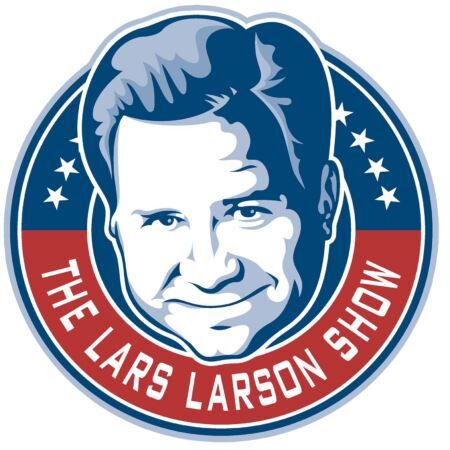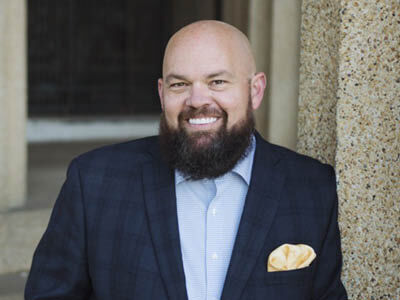US safety net helps protect children from abuse and neglect, and some of those programs are threatened by proposed budget cuts
News > Politics & Government News

Audio By Carbonatix
8:19 AM on Thursday, May 15
By Todd Herrenkohl,Kathryn Maguire-Jack,Rebeccah Sokol
(The Conversation is an independent and nonprofit source of news, analysis and commentary from academic experts.)
Todd Herrenkohl, University of Michigan; Kathryn Maguire-Jack, University of Michigan, and Rebeccah Sokol, University of Michigan
(THE CONVERSATION) President Donald Trump and Republicans in the House of Representatives have put forward budget proposals that would slash spending by hundreds of millions of dollars over the next decade on several programs that support low-income U.S. families with children.
If those cuts are in the version of the 2026 budget that clears Congress, and Trump signs it into law, funding for early childhood education, support for grocery purchases and an array of programs that help keep children fed, housed and cared for would decline sharply.
As professors who conductresearch aboutchild welfare, we are alarmed by these proposed cuts and concerned about their potential impact on children and families. We are particularly concerned that steps taken to reduce costs will make children less safe and more susceptible to the consequences ofabuse and neglect.
Help for low-income families
Our research has shown that increasing access to programs that support low-income families decreases child abuse and neglect while improving parents’ well-being. Examples of these programs include subsidies for child care and the earned-income tax credit, which supplements the earnings of many low- and moderate-income Americans.
Other researchers have found further evidence that policies that help low-income families put food on the table, keep a roof over their heads and obtain health care also provide for children’s basic needs, such as food and education, and keep children safe.
The proposed budget cuts could cost all taxpayers down the line because child abuse and neglect is costly for not only the people who are mistreated as kidsbut also for society.
What’s more, a series of cost-benefit studies have found that providing a safety net for families not only helps the families who receive assistance but also society as a whole.
Child abuse and neglect
In 2023, child protection agencies received 4.4 million reports for suspected abuse and neglect, and 546,159 cases were confirmed. As high as these numbers are, they drastically underestimate the number of abused and neglected children in the U.S. because many acts of abuse and neglect are never reported.
Research documenting the consequences and costs of child abuse and neglect has led many experts, including us, to recommend programs and policies that can reduce risks.
Without attempts to reduce these risks, more children would suffer or die. The U.S Department of Health and Human Services found that 2,000 children died from abuse and neglect in 2023. Nearly half of these fatalities were among children under the age of 1.
Risks tied to poverty
Some of the most helpful programs to prevent child abuse and neglect focus on reducing poverty.
Poverty can place children at risk of abuse and neglect. When families can’t afford the bare necessities, it can add to the stress that makes parenting more difficult.
Poverty isn’t the only cause of child abuse and neglect, but it is high on the list of risk factors. And its harms can be hard to reverse.
A recent campaign by Prevent Child Abuse America, a nonprofit, posits that child abuse and neglect are not a “bad parent problem” but rather “a lack of resource problem.” Researchers have found that child abuse and neglect often come from the social and economic issues that lead families into crises.
For example, parenting stress rises and children’s basic needs can go unmet when parents don’t have jobs, lack high-quality child care and generally struggle to make ends meet.
Government programs that help everyone
The Centers for Disease Control and Prevention has found that improving public health requires government programs that can reduce harm to children and promote childhood development and well-being.
These programs include efforts to improve parenting skills, expand access to high-quality child care and early education, and strengthen the financial resilience of families.
And yet the Trump administration initially sought to eliminate Head Start, a successful federally funded preschool program for low-income children, and dismantle many essential services. Evidence indicates that children who participate in Head Start are more likely to finish high school and college, which is important for employment and financial security.
The CDC and our own review of the research point to big improvements in children’s health and fewer cases of child abuse and neglect with economic policies such as the earned-income tax credit, Temporary Assistance for Needy Families and the Supplemental Nutrition Assistance Program.
We believe these programs are worth investing in because children’s lives are at stake. Especially when the economy appears to be in trouble, the consequences of weakening the safety net are dire.
This article is republished from The Conversation under a Creative Commons license. Read the original article here: https://theconversation.com/us-safety-net-helps-protect-children-from-abuse-and-neglect-and-some-of-those-programs-are-threatened-by-proposed-budget-cuts-255763.







